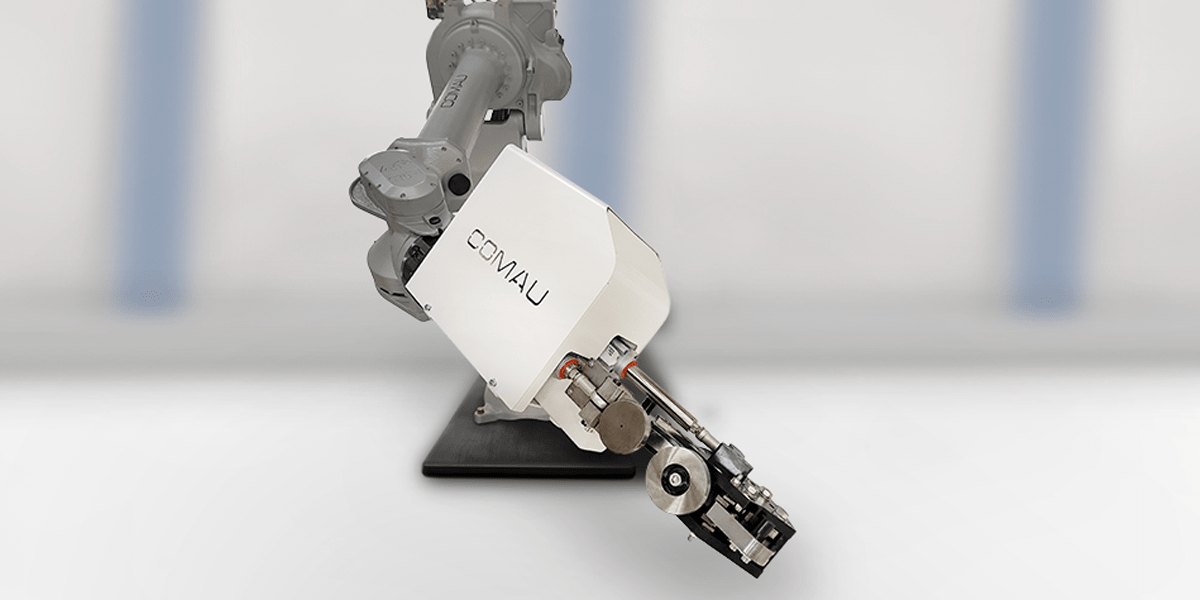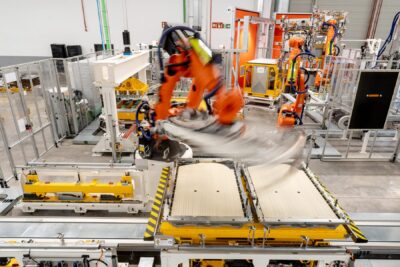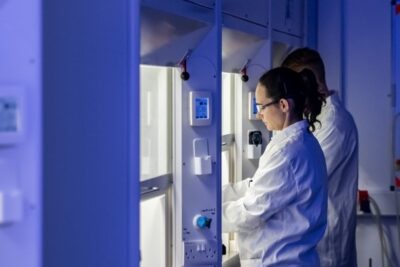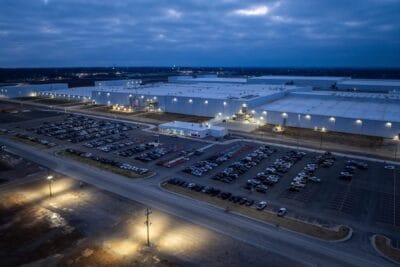Leclanché and Comau team up for freight batteries
Swiss battery manufacturer Leclanché has commissioned the Italian automation specialist Comau to build automated production lines for lithium-ion battery modules for freight transport applications such as rail and shipping.
The complete solution is capable of automating the entire manufacturing process –according to both companies; this ranges from stacking and welding the pouch cells to the final assembly of up to 32 different product configurations. This diversity of settings is possible through multiple articulated Comau robots and the use of a laser welding machine.
Freight transport by ship and train is becoming increasingly electric, while governments are pushing for lower emissions from all sectors. In this case, Maritime transport alone is responsible for 13 per cent of greenhouse gas emissions. Against this background, the Swiss company Leclanché and Comau, a member of the FCA Group, want to position themselves early to prepare for the expected demand for clean propulsion solutions.
“Leclanché made an early investment in developing a DNV GL* certified battery system for marine applications, and is the first battery supplier to fully comply with the stringent 2015 regulations,” said CEO Anil Srivastava. “Our partnership with Comau will enable Leclanché to produce our leading energy storage solutions for e-transport and e-marine applications at an industrial scale, securing Leclanché’s position as the provider of energy storage solutions to the sizeable and fast-growing electric and hybrid mass transport market.”
Globally, the International Maritime Organization (IMO) agreed last year to reduce emissions from shipping by at least 50 per cent by 2050 from 2008 levels. More concrete measures can be expected by 2023 with only Russia, Saudi Arabia and the USA opposing the proposal to decarbonise maritime transport. The other 173 countries signing the agreement do recognise the shipping industry as the sixth-largest greenhouse gas emitter, when seen as a country, according to data from the World Bank.
Additional reporting by Nora Manthey.





0 Comments